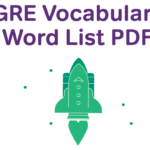Choosing articles at random from The New York Times, The New Yorker, and The Atlantic Monthly is much like walking straight into a vast, dense forest and hoping you will find a path through the woods.
To find insightful, nuanced articles, one has to contend with the weeds and underbrush (to continue the bosky metaphor) of articles based mainly on ephemera — Hollywood happenings or current events — and which provide little reflection from their respective authors.
Avoid the political tracker, the latest news, and any scandal (you can think of them as the bears in the woods). Even news on the Middle East, which has seen an historic uprising, has also seen a flurry of articles that deal more with reporting the latest happening than providing an in-depth analysis.
However, just because a piece falls under one of the above doesn’t mean it’s always made up of easily digestible bits, free of any intimidating words. Here is a political opinion piece that makes a nuanced, albeit impassioned, point.
In general, if there are trails in this forest of reading, they are best found in the Science, Arts, and Literature Essays. Perhaps the trail metaphor is a bit misleading — even paradoxical — for these articles are difficult. And they should be — if you are prepping for the Revised GRE, you want to challenge yourself with reading.
Challenging reading tends to be vocabulary-dense (and no, don’t think of vocabulary as weeds), insightful, and complex. Below are three criteria you want to have in mind when choosing articles to read.
Subject Matter
The more esoteric the better. After all, the new GRE does not choose passages based on familiarity. This week, there is a profile of Helene Grimaud, a classical pianist known for her unorthodox style and bold interpretations of the usual suspects from the classical oeuvre.
The piece discusses how she approaches learning pieces and, on a deeper level, how she interprets classical music — what is “proper,” what is innovative, and what is simply a butchering of the composer’s work. Uh, you still with me? Forcing yourself outside of your comfort zone will help you immensely on test day.
Even seemingly prosaic topics, such as maple syrup, can, in the right hands, become a fascinating exploration of history.
Length
If you become accustomed to reading longer articles, your brain will develop more reading endurance. Because the new GRE is a marathon and not a sprint, you will want to practice improving your endurance, or your ability to endure long pieces, as it were.
Many feature articles from The New Yorker or The Atlantic Monthly can run ten pages. You don’t have to read the entire article in one sitting (remember: if you are just stringing words together, you are not really reading). Understanding what you read and taking an interest, as much as possible, will help).
A New Yorker feature about a rogue scientist unraveling the mystery of the Neanderthals is a great place to start. It’s nine pages long, reflects on our existence and that of our erstwhile, hirsute relative, and contains GRE vocabulary words — many you’ve seen before; many you haven’t.
Analysis
You don’t want an article that simply reports the facts. You do want an article that offers an opinion or viewpoint. Almost all the longer GRE passages fall into this category. Better still, a viewpoint that is complex and nuanced will challenge you to really think about what a writer is saying. This is a skill you will definitely need on the GRE.
Density
Rumor has it that the GRE takes already complex passages and makes them even more complex. Therefore, try to find articles in which the author favors long, winding sentences, chock full of big ideas and big words. Who knows —maybe that author works for ETS.
Choosing Your Own Articles
So venture forth, and see which fascinating piece of writing you can unearth from the forest of magazines and periodicals.





